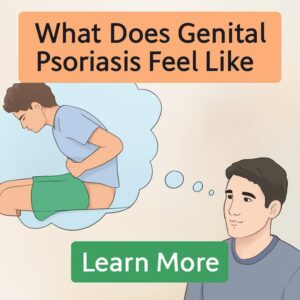Understanding Genital Psoriasis: A Comprehensive Guide
Genital psoriasis is a chronic skin condition that can disrupt daily life, yet remains a largely misunderstood topic. This article delves deep into the intricacies of genital psoriasis—its causes, symptoms, and treatment options—providing invaluable insights for both patients and healthcare professionals. By shedding light on this condition, our goal is to enhance awareness and promote effective management strategies.
What is Genital Psoriasis?
Genital psoriasis is a form of psoriasis that specifically affects the genital area, including the vulva, penis, buttocks, and inner thighs. Though it shares many characteristics with other forms of psoriasis, its unique features set it apart:
- Location Specificity: Unlike other types that can affect any part of the body, this variant is localized and can significantly impact one’s quality of life.
- Symptoms: Common symptoms include redness, irritation, itching, and scaling, which can sometimes lead to discomfort during intimate moments or daily activities.
- Emotional Impact: The sensitive nature of this area can lead to feelings of embarrassment or anxiety, necessitating a compassionate approach to treatment.
Causes and Triggers
Understanding the underlying causes of genital psoriasis is crucial in framing effective treatment plans. It’s believed to be an autoimmune condition, where the body’s immune system mistakenly attacks healthy skin cells. Some of the common triggers include:
- Genetics: Family history plays a significant role in predisposition to psoriasis.
- Skin Injuries: Cuts, scrapes, or even excessive rubbing can aggravate the condition.
- Stress: Emotional upheaval is often cited as a key factor in psoriasis flare-ups.
Treatment and Management
Managing genital psoriasis often requires a multifaceted approach tailored to the individual’s needs. Treatment options include:
- Topical Treatments: Steroid creams and ointments are commonly prescribed to reduce inflammation and soothe the affected area.
- Light Therapy: Phototherapy may be recommended to alleviate symptoms and promote skin healing.
- Oral Medications: In severe cases, systemic treatments may be necessary to help regulate the immune response.
Living with Genital Psoriasis
Living with genital psoriasis can be challenging, but awareness and proactive measures can foster a sense of control. Encouraging open dialogue and seeking support from healthcare providers can yield substantial benefits. Furthermore, lifestyle modifications such as stress management, maintaining skin hydration, and adhering to a tailored skincare routine can enhance overall well-being.
In conclusion, understanding and addressing genital psoriasis requires empathy, knowledge, and the right resources. By equipping ourselves with the right information, we can transform the narrative around this condition, helping those affected lead fulfilling lives despite the challenges they face.

